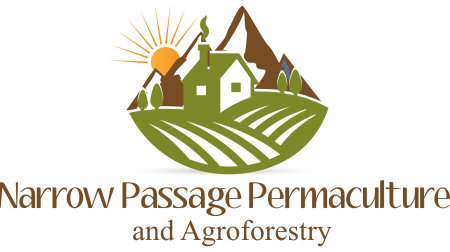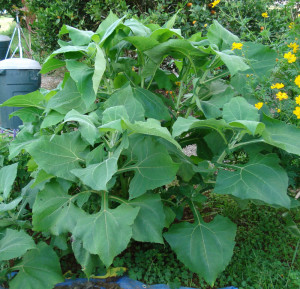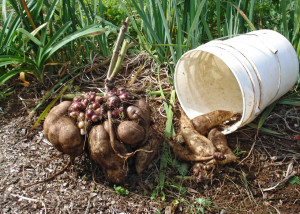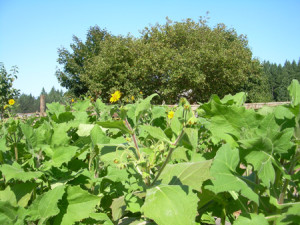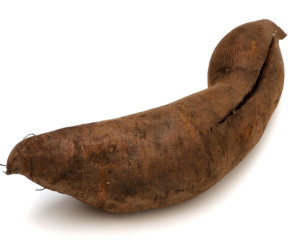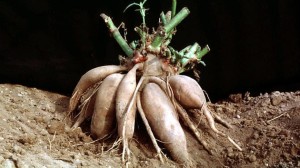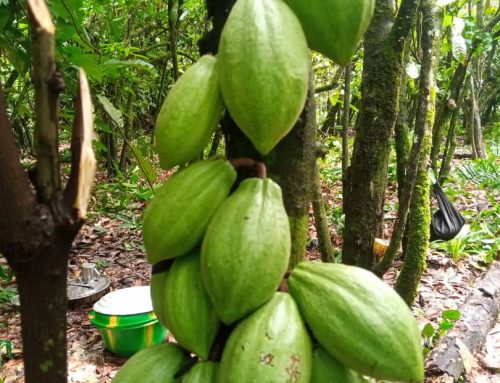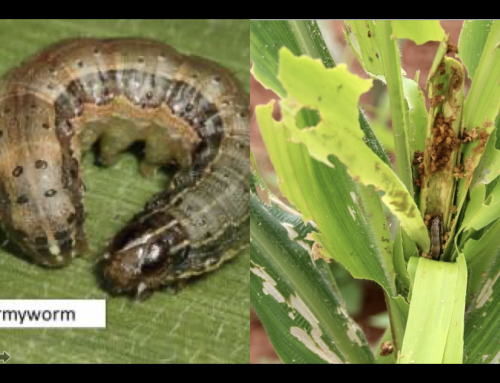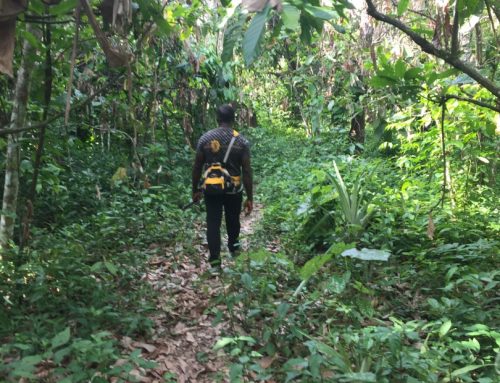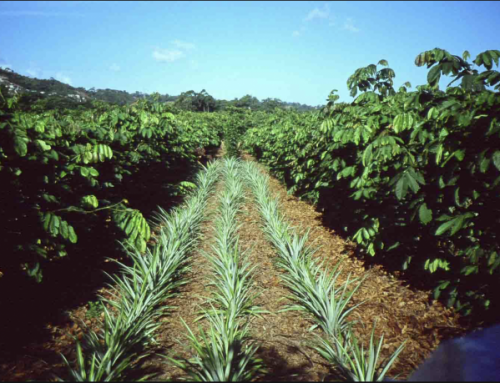In looking for plants to add to our Permaculture site, I had considered Yacón. I was not sure it would grow in this area until I discussed Yacón with a fellow PDC and friend in Northern Virginia. He has successfully grown yacón and provided me with an excellent specimen to try along with a full crown and rhizome clump.
Yacón is a perennial, tuber producing plant traditionally grown in South America in the Andes Mountains. It is a food plant that produces a good volume of tubers resembling sweet potatoes. Their texture and flavor are very similar to Jicama. Yacón also has some slightly sweet, resinous, and floral undertones to its flavor. Another name for yacón is Peruvian ground apple. The tuber is composed mostly of water and fructooligosaccharide (FOS), a natural sugar like substance. Lots of people eat them alone raw, cooked, or in salads. we sauteed them up to have with eggs. VERY tasty! Think of sweetened home fries and you about have description wise.
Sometimes confused for Jicama, Yacón is rather a close relative of the sunflower and Jerusalem artichoke or Sunchoke the latter of which is featured in my previous post http://www.narrowpassagepermaculture.com/permaculture-plant-favorites-sunchokes/ . The plant produces a perennial rhizome to which are attached the edible, succulent roots, the principal productive product of the plant. The rhizome develops just under the surface of the soil and continuously produces aerial shoots. Dry and/or cold seasons cause the aerial shoots to die off, but the rhizome resprouts new shoots under favorable conditions of temperature and moisture.
As I mentioned, the tubers contain FOS, an indigestible polysaccharide made up of fructose. Fructooligosaccharides taste sweet, but pass through the human digestive tract un-metabolised, hence have very little caloric value. Additionally, FOS plants have a prebiotic effect, meaning they are used by beneficial bacteria that enhance colon health and aid digestion. The yacon is an excellent “survival food” for diabetics and others with insulin related difficulties.
Yacón plants can grow to over 6 feet in height and produce small, inconspicuous yellow blooms by the end of their growing season. For those growing plant producing food in Guerrilla gardening situations, the plants do not look at all like the food producing machine they are in actuality. Dissimilar to many other root vegetables grown for food by the indigenous peoples of the Andes, yacón is not dependent on tropical hours of daylight, and can produce a commercial yield in the subtropics as well. The edible tubers can be large and typically weigh from a few ounces to 3 pounds or more.
Until as recently as the early 2000s, Yacón was barely known outside of its limited native range, and was not available from urban markets; however, press reports of its use in Japan for its purported antihyperglycemic properties made the crop more widely known in Lima and other Peruvian cities. Companies have also developed products that are popular among diabetics and dieters such as Yacón syrup and yacon tea, as well as Yacón nutritional supplements. It has become a westernized “super-food”. Here are just a few sources for yacon products (links follow}:
Yacon Slices RawOrganic 2 Ounces
Growing Yacon
Yacón likes moist soil with moderate heat. They have a fairly long growing season, being harvested in the fall. Think of the growing characteristics of Sunchokes and Parsnips.
Starting from the crown in a large pot, as shoots appear, the rhizomes can be separated into smaller pots and kept ready for planting in the spring with some compost to get them off to a good start. Once established, they are an easy little care plant, that is bothered little by pests or disease.
Hopefully, in the fall 2015, I can report again on my successful experiment with Yacón!
